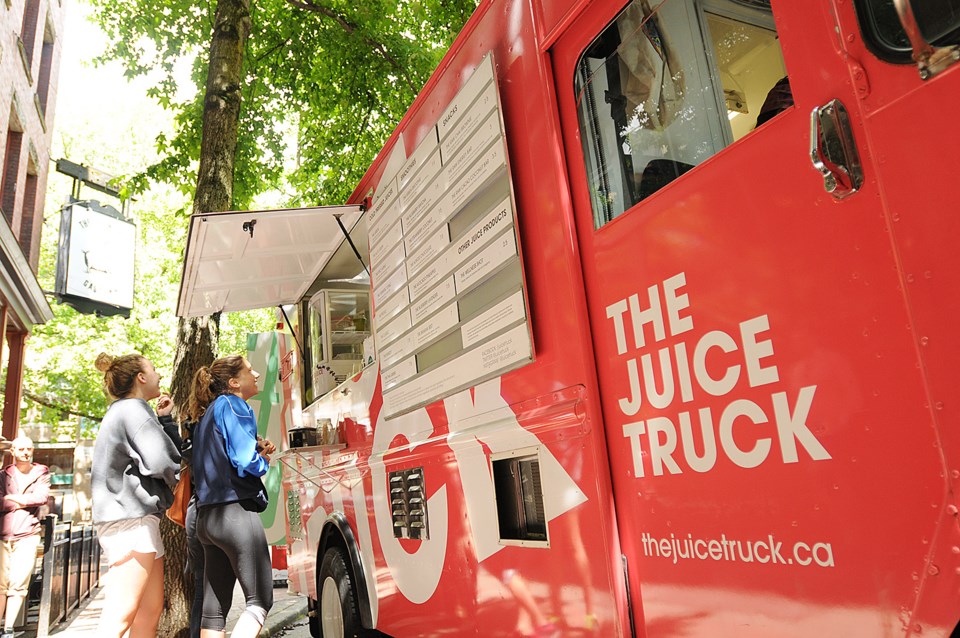Whether looking for an economical way to enter the food industry or a venue to experiment new dishes, food carts are a mobile option to build a brand and get the eats directly to the people.
The City of Vancouver began approving licenses for food carts in 2010 and there are now over 100 street vendors. Vancouver’s third Food Cart Fest begins June 22 and continues every Sunday this summer at Olympic Village.
Zach Berman dreamed of selling cold-pressed juices and doing it from a truck made it possible. He began The Juice Truck with co-owner Ryan Slater three years ago. Their brick-and-mortar store opens next week in Mount Pleasant.
Berman believes food carts are a helpful gateway for young chefs and entrepreneurs.
“I was 24 when we launched the business,” said Berman. “The best thing is to go for it and things will figure themselves out, but you have to be willing to work hard.”
Steven Ewing is a professional chef of 25 years who fought hard to make a name for his cart, Yolk’s, which sells handcrafted breakfast and brunch made from local ingredients.
“I wanted to work for myself,” said Ewing. “Opening a restaurant was too much money so I decided to go for a food cart.”
He stresses that starting a cart isn’t as easy as it looks on TV. Restaurant experience, finding equipment and a solid concept are all crucial, but a thousand things can happen on the road. Ewing has battled broken waterlines, squeezing his trailer into odd spaces and two consecutive flat tires in a single morning.
“I only had one spare. I got the tires swapped and two blocks later the trailer felt weird again. That was the day.”
Tacofino truck manager Stuart Whyte also encountered surprises when hired for catering.
“With a new location, you don’t know what to expect when you get out there,” said Whyte. “You might even need a topographical map like in North Van when you need to get to the top of a mountain and the truck can’t get up there.”
Whyte believes food carts are a good way to develop a name and build a reputation.
For Ewing, building a reputation comes from fighting the unexpected with consistency.
“I was there every day,” he said. “It didn’t matter if it was raining or snowing. It’s pretty easy when you’re your own boss and when it’s raining to decide not to be there because it’s only a hundred dollars. But it’s not worth pulling the plug. I never did that. I’ve seen many food truck operators say they’re open and they’re not open.”
Ewing believes this attitude helped him eventually open a Yolk’s storefront location on Hastings.
But not everyone starts a food cart to get a foot in the door. The Reef restaurants had existing locations on Main Street and Commercial Drive before deciding to take on the streets April 2013, manipulating restaurant favourites for a truck.
“We already had the infrastructure in place,” said co-owner Simon Cotton. “Our goal was always to bring our approach to Caribbean food [to the area] and it was just an opportunity to do Caribbean street food.”
Vendors recommend the Street Food Vancouver app to find carts or to visit the industry’s major players at Food Cart Fest.
“The food is so fresh, so in the moment,” said Cotton. “You’re creating food immediately,”
“I’ve been to a lot of food carts and I’ve yet to try one I don’t like,” said Berman of The Juice Truck.
chrischcheung@hotmail.com



